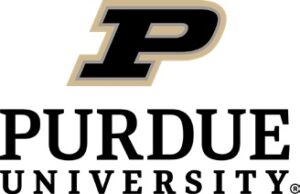Co-Chairs
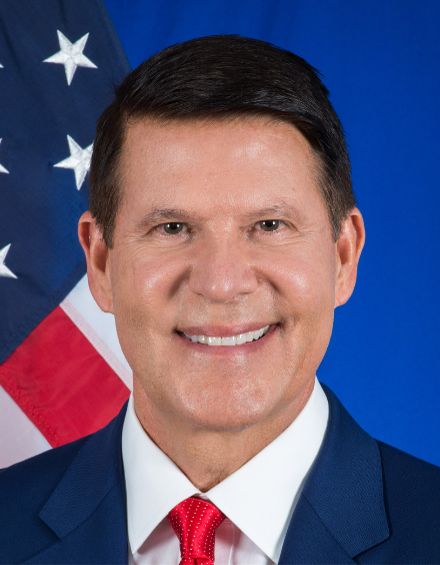
The key to securing freedom for the next generation is securing technology. Tomorrow’s tech must be trusted tech developed and protected by a Global Trust Network of like-minded countries, companies, and individuals who respect the rule of law, human rights, labor practices, national sovereignty, and the environment.
View Detail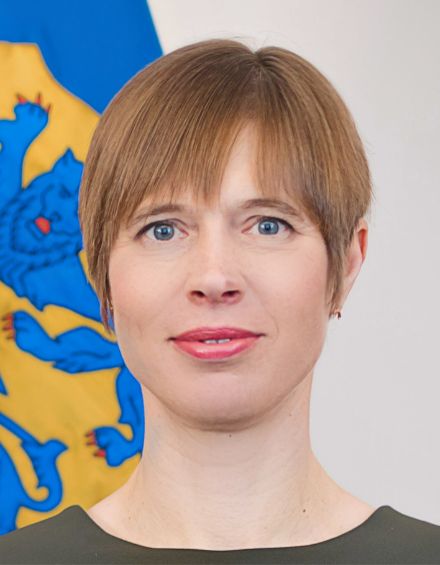
We will win. But for us to safely mine the technology pool created by the great minds of our private sector companies, we have to have standards, agreements. Nobody must be able to blow up what we trust in technology, and for that indeed we need the Global Tech Security Commission.
View DetailHonorary Co-Chairs

“The Global Tech Security Commission is an important effort to support our national defense and secure American prosperity against our great power competitors in the tech domain,” said Senator Ernst. “The Commission’s work will provide a roadmap for America’s present-day and next-generation workforce to develop, employ, and secure critical technologies.”
View Detail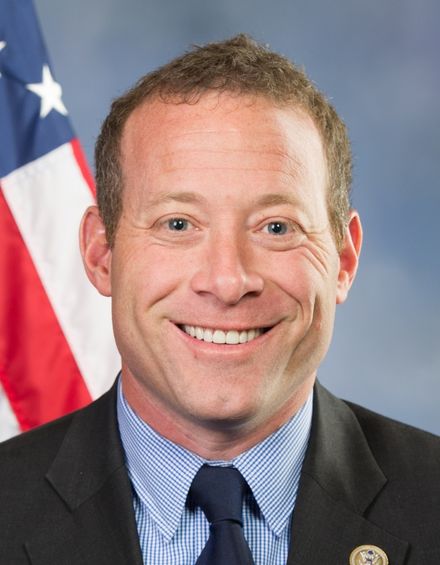
“As the United States incentivizes investments in emerging technologies, we must ensure that our advances are not undermined by domestic threats or anti-democratic, authoritarian regimes like those in China, Russia, and Iran. These foreign adversaries have made it clear that they are willing to leverage technology to breach United States institutions, steal intellectual property, collect data on American citizens, and access the systems that control our critical infrastructure…”
View Detail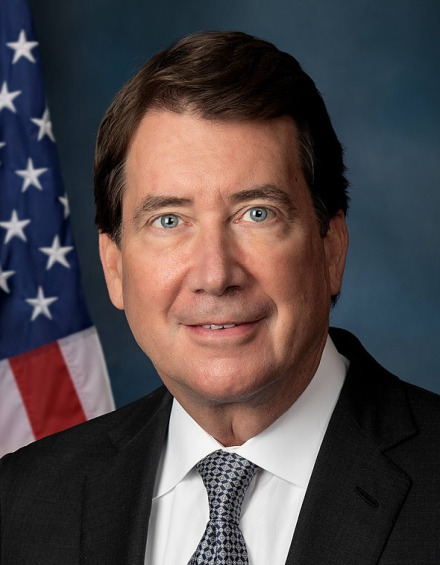
“The Chinese Communist Party and other authoritarian regimes are leveraging critical and emerging technologies in order to challenge freedom and security around the world. The 21st century will therefore largely be defined by how the United States and our partner nations respond to these grave and gathering threats. I commend the Global Tech Security Commission for developing a global strategy for technology security that meets these rising challenges…”
View Detail
“I am proud to be an honorary co-chair of the GTSC. I greatly appreciate the visionary leadership of my fellow former Under Secretary of State, Keith Krach, as the GTSC engages in the critical and urgent work of developing a global strategy for combating techno-authoritarianism and building ties of technological trust…”
View Detail
“Countering the Chinese Communist Party’s techno-authoritarianism by developing and harnessing advanced technology is one of the critical challenges of our time. I am proud to join the nonpartisan Global Tech Security Commission as an honorary co-chair to work to address this challenge…”
View Detail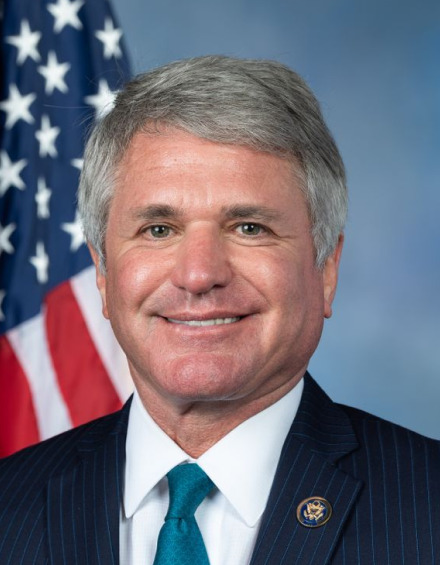
“Technology will determine whether America remains a leading superpower or is eclipsed by authoritarians, like the Chinese Communist Party. It is essential for the United States to lead in technology modernization in critical sectors and protect the know-how, manufacturing capability, and capital for these vital technologies from supporting our rivals…”
View Detail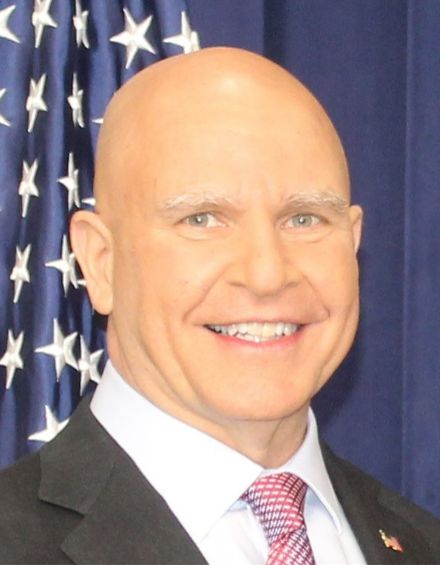
As the authoritarian regime of the Chinese Communist Party is becoming more aggressive and pursues differential advantages over the United States and our allies, it is vital that we develop and apply critical technologies to preserve peace through strength. We must also protect technologies and intellectual property from state-based espionage. I look forward to serving as Honorary Co-Chair of the Global Tech Security Commission and supporting the commission’s noble mission of protecting our nation and our allies and safeguarding freedom through trusted technology.
View Detail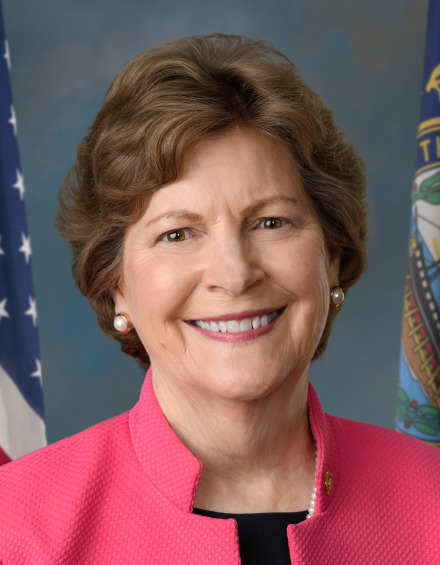
“I appreciate the opportunity to join lawmakers from both chambers and both sides of the aisle to serve as an honorary co-chair on the Global Tech Security Commission. As policymakers, our actions are guided by the most up to date and accurate information available, as we look to counter China’s escalating aggression against Taiwan and democracies worldwide, and its expansive influence in our global market…”
View Detail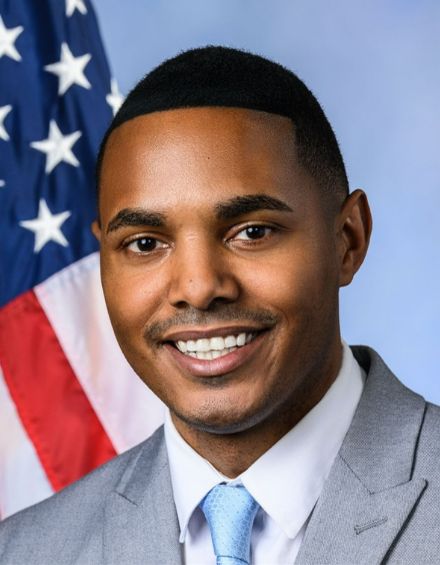
It is critical that the United States sends a powerful message of strength to the global community, especially in the face of global challenges posed by the Chinese Communist Party. I’m looking forward to joining the team at the Global Tech Security Commission to advise efforts to amplify this vital national security message. My work on the House Select Committee on the Strategic Competition Between the United States and the Chinese Communist Party supports our nation’s critical mission to deter violations of American sovereignty and transnational aggression by the CCP on our soil.
View Detail
“When focused on protecting civil rights, consumers, and democracy as a whole, advanced technologies like artificial intelligence and biomedical engineering can be used to solve some of the most daunting challenges humanity faces. It is critical that the United States work with our partners and allies to deploy these emerging technologies responsibly, secure our supply chains, and prepare our workforce. Failure to do so will pave the way for Chinese influence that could threaten human rights around the globe.”
View Detail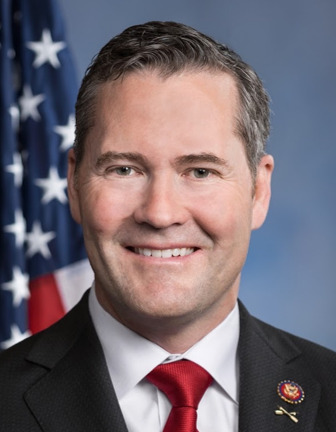
“It’s critical to our national security that we come together to develop solutions to counter the Chinese Communist Party’s technological rise. I’m thrilled to serve alongside fellow lawmakers on the Global Tech Security Commission to ensure we deliver recommendations that can be applied by both our government and allies around the world to ensure democracies maintain a technological edge and safeguards freedom over authoritarian adversaries.”
View Detail
“In the 21st century, a top challenge will be countering authoritarian and adversarial governments. It is crucial that we continue to build on American advancement in technology and security and I look forward to working with the Global Tech Security Commission to continue this important work.”
View Detail
“I’m honored to serve on the Global Tech Security Commission with my friend Keith Krach, my colleagues in Congress, and other national security leaders. I look forward to working with this Commission on a variety of issues critical to preserving America’s global leadership in science and technology. We have a national security imperative to ensure the United States doesn’t fall behind our adversaries in technological innovation.”
View Detail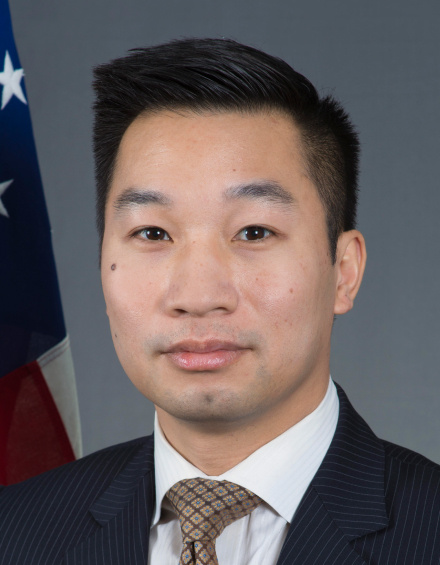
We’re at the crest of a new wave of technologies that will deeply affect economies, societies, and the human condition. Whether those effects are positive or negative for human freedom is not predetermined. It’s therefore incumbent upon policymakers and innovators in the Free World to craft and adopt standards that ensure technology expands liberty.
View DetailCommissioners
Tech Commissioners
| ERIK BETHEL Fmr U.S. Executive Director, World Bank; Managing Partner, Quad Fund Commissioner for Financial Technologies (Fintech)
MATT BLUNT
DANIEL DELAURENTIS
FRANK FANNON
DANIEL GOLDIN
MARCUS JADOTTE | TOM LUPFER President & Founder, Clarity Design, Inc. Commissioner for Advanced Manufacturing and Robotics
THOMAS SONDERMAN
ROBERT SPALDING
DAVID SPIRK
JAKE TAYLOR |
International Commissioners
| TONY ABBOTT 28th Prime Minister of Australia Commissioner for Australia
SIR IAIN DUNCAN SMITH
EYAL HULATA
KERSTI KALJULAID
JAMES KIM | KEITH KRACH Chairman and Co-Founder, Krach Institute for Tech Diplomacy at Purdue Co-Chair, United States of America
PAVEL POPESCU
HARSH SHRINGLA
AUDREY TANG
TADAO YANASE |
Strategy Commissioners
| THE HON. TODD CHAPMAN Former U.S. Ambassador to Brazil and Ecuador Commissioner for Diplomacy HARRIS DIAMOND
ANDY GEISSE
ANDREI IANCU
COREY JOHNSTON
RICHARD KANG
MICHAEL KRATSIOS
GREG LEVESQUE
C. J. MAHONEY | DAN NEGREA Former Special Representative, U.S. State Department, Economic Bureau Commissioner for Prosperity Partnerships GREG NELSON
NAZAK NIKAKHTAR
JOHN O’CONNOR
ROGER W. ROBINSON JR.
JIM SCHWAB
DAVID STILWELL
HENRY STOEVER
ROB STRAYER
MILES YU |
Tech Sectors
The Commission is focused on technologies that are critical to American and allied national security and foreign policy, and advocates for a global tech agenda that reflects freedom, democracy, and human rights.
Participating Countries
Techno-authoritarianism is a threat to every freedom-loving country, company, and individual. The Global Tech Security Commission is committed to bipartisan and international cooperation and solidarity to ensure that technology advances freedom.
Even as the U.S. intelligence community grew and grew, the U.S. government’s capacity to analyze and solve problems did not. Its policy side became weakly staffed and poorly trained; officials had barely been taught about policy work at all. Those who excelled had usually taught themselves. When operations were needed, contractors had to be hired, and they often just compounded the problems.
Former U.S. Department of State Counselor Philip Zelikow,
“The Atrophy of American Statecraft,” December 2023”[i]
Operational Know-How
The Krach Institute for Tech Diplomacy at Purdue’s Global Tech Security Commission operates from a record of proven results. Many decades of operational experience have forged the Commissioners’ understanding of how to develop transformational ideas and implement them both in the public and private sector. As a result, the Commission’s members possess a unique level of credibility for generating and, most importantly, executing on their ideas in arenas such as high-tech innovation and commercialization, government-to-government diplomacy, capital investments, corporate governance, academia, defense, and trade. The Commission’s collective expertise is a difference-maker at a time when too many government officials lack commercial and operational know-how, and too many private sector leaders are unfamiliar with how to engage in national security outside of regulatory compliance.
Below are just a few examples of how members of the Global Tech Security Commission have produced results and scalable models of tech diplomacy at the highest levels of the corporate, academic, tech, and diplomatic worlds. This track record is the basis for the findings, imperatives, Principles, and all current and future Commission outputs.
Securing Global 5G Infrastructure Through the Clean Network Alliance of Democracies:
 From 2019-2021, then-Under Secretary of State Keith Krach executed a historic diplomatic initiative to build the Clean Network, a group of 60 countries (representing approximately two-thirds of global Gross Domestic Product (GDP)), more than 200 telecommunications companies, and dozens of other industry-leading companies. All entities in the Clean Network are committed to keeping untrusted technologies, such as those manufactured by Huawei, the backbone of the Chinese Communist Party’s (CCP’s) surveillance state, out of their national telecommunications networks.[ii] This initiative has been taught as a case study at Harvard Business School.
From 2019-2021, then-Under Secretary of State Keith Krach executed a historic diplomatic initiative to build the Clean Network, a group of 60 countries (representing approximately two-thirds of global Gross Domestic Product (GDP)), more than 200 telecommunications companies, and dozens of other industry-leading companies. All entities in the Clean Network are committed to keeping untrusted technologies, such as those manufactured by Huawei, the backbone of the Chinese Communist Party’s (CCP’s) surveillance state, out of their national telecommunications networks.[ii] This initiative has been taught as a case study at Harvard Business School.[ii] Michael Mink, “How the Clean Network Alliance of Democracies Turned the Tide on Huawei in 5G,” Life & News Online Edition, December 2, 2020, https://www.lifeandnews.com/articles/how-the-clean-network-alliance-of-democracies-turned-the-tide-on-huawei-in-5g/.
Establishing the World’s Most Digitally Advanced Society:

Former President Kersti Kaljulaid accelerated Estonia’s post-1991 commitment to digitizing its society for the benefit of all Estonians. Wired has described “e-Stonia” as “the world’s most digitally advanced society,” reflecting not only the vast array of digital services Estonia offers to its citizens, but the country’s commitment to trusted technologies. [iii] Kaljulaid’s experience is all the more valuable as Estonia has consistently been a target of Russian cyber aggression since its independence.
[iii] Matt Reynolds, “Welcome to E-stonia, the world’s most digitally advanced society,” Wired, October 20, 2016, https://www.wired.com/story/digital-estonia/.
Strengthening Techno-Democratic Diplomatic Ties:

GTSC Commissioner for India Harsh Shringla previously served as India’s Ambassador to the U.S. (2019-2020), India’s Foreign Secretary (2020-2022), and Chief Coordinator for India’s G20 Presidency in 2023. Under Shringla’s leadership, India made technological transformation and digital public infrastructure a flagship priority of its G20 Presidency, producing the groundbreaking G20 High-Level Principles to Support Businesses in Building Safety, Security, Resilience, and Trust in the Digital Economy. His work helped strengthen the ties between the world’s two largest democracies at a time when a strong U.S.-India relationship is more important than ever for advancing a world of trusted technologies.
 GTSC Commissioner for Taiwan Audrey Tang, the former and first-ever Minister of Digital Affairs of Taiwan (R.O.C.) from 2022 to 2024, has been called one of the “ten greatest Taiwanese computing personalities.” Her work as Digital Minister focused on leveraging technology to help the Taiwanese government function more effectively. Former Australian Prime Minister Tony Abbott and former Japanese Prime Minister Taro Aso, both Global Tech Security Commission Members, also provide an unmatched perspective on geopolitical issues.
GTSC Commissioner for Taiwan Audrey Tang, the former and first-ever Minister of Digital Affairs of Taiwan (R.O.C.) from 2022 to 2024, has been called one of the “ten greatest Taiwanese computing personalities.” Her work as Digital Minister focused on leveraging technology to help the Taiwanese government function more effectively. Former Australian Prime Minister Tony Abbott and former Japanese Prime Minister Taro Aso, both Global Tech Security Commission Members, also provide an unmatched perspective on geopolitical issues.Establishing Trust with Tech Standard Setting:
 During her time as the Head of Trust Strategy and Marketing at DocuSign, Heather Petersen helped established the xDTM Standard Association, a consortium of leaders in digital transaction management. The Association’s mission, over two years, was to develop a set of best practices for digital transactions in a new era of cloud services. Providers were asked to address security, assurance, privacy, validity, availability, scalability, universality, and interoperability as indicators of trust. DocuSign announced its compliance with the xDTM standard in 2016, and the standard received endorsements from FedEx, Intel, Dow Jones, NBC Universal, Visa, and over 300 other major companies. As Jim Hagemann Snabe, board member at the World Economic Forum, remarked, “The xDTM Standard has enhanced the quality of digital transactions and digital signatures around the world.”
During her time as the Head of Trust Strategy and Marketing at DocuSign, Heather Petersen helped established the xDTM Standard Association, a consortium of leaders in digital transaction management. The Association’s mission, over two years, was to develop a set of best practices for digital transactions in a new era of cloud services. Providers were asked to address security, assurance, privacy, validity, availability, scalability, universality, and interoperability as indicators of trust. DocuSign announced its compliance with the xDTM standard in 2016, and the standard received endorsements from FedEx, Intel, Dow Jones, NBC Universal, Visa, and over 300 other major companies. As Jim Hagemann Snabe, board member at the World Economic Forum, remarked, “The xDTM Standard has enhanced the quality of digital transactions and digital signatures around the world.”Onshoring Semiconductor Manufacturing:
 Then-Under Secretary Krach designed and executed the 2020 landmark agreement that led the Taiwan Semiconductor Manufacturing Company (TSMC) to establish a new $12 billion chip fabrication facility (fab) in the U.S. at a time when America did not possess a single fab on its shores. Since the inception of that facility, the largest onshoring project in U.S. history at the time, TSMC has now invested more than $65 billion in three semiconductor plants in the U.S., and companies such as Micron, Intel, and others have decided to build and diversify their operations in the U.S., Japan, and Germany. In 2024, South Korea’s SK Hynix invested $4 billion to build a fabrication facility at Purdue’s Research Park, the largest economic development project in Indiana’s history.
Then-Under Secretary Krach designed and executed the 2020 landmark agreement that led the Taiwan Semiconductor Manufacturing Company (TSMC) to establish a new $12 billion chip fabrication facility (fab) in the U.S. at a time when America did not possess a single fab on its shores. Since the inception of that facility, the largest onshoring project in U.S. history at the time, TSMC has now invested more than $65 billion in three semiconductor plants in the U.S., and companies such as Micron, Intel, and others have decided to build and diversify their operations in the U.S., Japan, and Germany. In 2024, South Korea’s SK Hynix invested $4 billion to build a fabrication facility at Purdue’s Research Park, the largest economic development project in Indiana’s history.Restructuring the Department of State for the Digital Age:
 In 2019, while serving as U.S. Assistant Secretary of State for Global Public Affairs, Krach Institute chief executive Michelle Giuda led and executed the largest restructuring within the State Department in twenty years to modernize and dramatically improve the ability of the U.S. to leverage modern communications technologies in its diplomatic efforts, and to effectively compete with adversaries in the information space.
In 2019, while serving as U.S. Assistant Secretary of State for Global Public Affairs, Krach Institute chief executive Michelle Giuda led and executed the largest restructuring within the State Department in twenty years to modernize and dramatically improve the ability of the U.S. to leverage modern communications technologies in its diplomatic efforts, and to effectively compete with adversaries in the information space.Leveraging Education as a Strategic Asset:
 Global Tech Security Commissioner for Education, Henry Stoever, the former President and CEO of the Association of Governing Boards of Universities and Colleges, formed the Council on Higher Education as a Strategic Asset (HESA) to strengthen the global competitive position of the United States through education. Comprised of more than 60 leaders from business, government, nonprofit organizations, education, and the military, HESA has developed recommendations for the President of the United States of America, members of the U.S. Congress, the U.S. Secretary of Education, state governors and legislators, and higher education governing boards and chief executive officers.
Global Tech Security Commissioner for Education, Henry Stoever, the former President and CEO of the Association of Governing Boards of Universities and Colleges, formed the Council on Higher Education as a Strategic Asset (HESA) to strengthen the global competitive position of the United States through education. Comprised of more than 60 leaders from business, government, nonprofit organizations, education, and the military, HESA has developed recommendations for the President of the United States of America, members of the U.S. Congress, the U.S. Secretary of Education, state governors and legislators, and higher education governing boards and chief executive officers.Delivering Excellence at Scale as a Leading National Security University:

The Commission enjoys a tremendous differentiating advantage in having Purdue University as its home base. Purdue is a world-class research institution with a 155-year history of producing STEM (science, technology, engineering and math) graduates equipped to understand—and shape— trends in cutting-edge technologies. Purdue is recognized by U.S. News & World Report as one of the 10 most innovative colleges in America,[iv] by IPWatchdog Institute as a top three leader in startup creation,[v] and by the U.S. Patent and Trademark Office as a top-five leader in the U.S. for patents.[vi] Even more importantly to the Commission’s work, Purdue’s leaders understand the nature of the battle between the free world and authoritarianism and are committed to leading the development of the technologies and the workforce necessary to protect freedom, prosperity, and national security.
Under the leadership of President Mung Chiang, former Science and Technology Advisor at the U.S. State Department, Purdue marries its legacy as a hub for cutting-edge scientific research with a practical understanding of how technology must support national and international security, innovation and prosperity.
- Purdue has taken the lead in forging global partnerships devoted to research and development to serve trusted technology ends:
- Purdue and Belgium-based imec, a crown jewel of chips innovation in Europe, have opened an R&D hub on Purdue’s campus.
- During the 2023 meeting of G-7 nations in Japan, Purdue and Hiroshima University signed an inter-university agreement to promote academic and educational exchanges.
- In May 2023, Purdue agreed to partner with the Indian government in skilled workforce development and joint research and innovation in the burgeoning fields of semiconductors and microelectronics. In March 2024, Purdue President Mung Chiang traveled to Costa Rica to strengthen semiconductor partnerships.
- In July 2024, Indiana-based Heartland BioWorks, of which Purdue is a member, received $51 million in federal funding to support workforce development in Indiana’s biotechnology ecosystem.
- The partnership between Purdue and leading South Korean semiconductor manufacturing firm SK hynix was awarded $450 million in direct support for high-bandwidth-memory production and advanced packaging research and development at a planned Purdue Research Park facility in West Lafayette.
- The Applied Research Institute (ARI) of Indiana granted funding to Purdue to advance artificial intelligence hardware through the Microelectronic Commons program in collaboration with the Silicon Crossroads Microelectronics Commons Hub, one of eight national hubs funded by the federal CHIPS and Science Act.
- The Purdue Applied Research Institute (PARI) is devoted to meeting urgent needs in national security, infrastructure and global development. Its research areas include hypersonic technologies, microelectronics, energetics and infrastructure materials.
- Purdue is the first institution in the United States offering a dedicated master’s degree program in semiconductor engineering, reflecting the school’s commitment to addressing the growing need for skilled professionals in semiconductor technology in the U.S. and allied countries.
- Part of the Discovery Park District family of centers and institutes, Purdue’s Birck Nanotechnology Center, a 186,000-square-foot facility that features a 25,000-square-foot cleanroom laboratory for nanofabrication, is at the heart of developing technologies essential for U.S. and allied security. Birck’s SCALE partnership also brings together 29 universities and 59 defense industry and government entities to develop curriculum and internship and training models.
- The university’s groundbreaking computer science and engineering strategic initiative, Purdue Computes, educates tech innovators needed to maintain U.S. leadership in critical fields of economic and national security, including AI, semiconductors, and quantum science and engineering.
These examples and others are case studies of effectiveness that serve as the foundation for the Global Tech Security Commission’s thinking and recommendations.
“This is, I think, the most exciting human fab that I’ve ever seen. And building the next generation of leaders in technology – it’s incredibly powerful…All of this is part of tech diplomacy.”
— Secretary of State Antony Blinken, during a visit to Purdue’s microelectronics training facilities at the Birck Nanotechnology Center, September 2022
[iv] “The 10 Most Innovative Colleges in America,” US News & World Report, September 24, 2024, https://www.usnews.com/best-colleges/rankings/national-universities/innovative.
[v] Cynthia Sequin, “Purdue Ranked 3rd Nationally in Startup Creation,” Purdue University News, April 28, 2020, https://www.purdue.edu/newsroom/archive/releases/2020/Q2/purdue-ranked-3rd-nationally-in-startup-creation.html.
[vi] Polly Barks, “Boilermaker Research Demonstrates Excellence at Scale: Purdue Ranks in Top 5 in U.S. for U.S. Patents Received,” Purdue University News, February 15, 2024, https://www.purdue.edu/newsroom/2024/Q1/boilermaker-research-demonstrates-excellence-at-scale-purdue-ranks-in-top-5-in-u-s-for-u-s-patents-received.
- Purdue has taken the lead in forging global partnerships devoted to research and development to serve trusted technology ends:
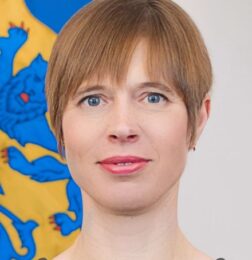
We will win, but for us to safely mine the technology pool created by the great minds of our private sector companies, we have to have standards, agreements. Nobody must be able to blow up what we trust in technology, and for that indeed we need the Global Tech Security Commission.
Kersti Kaljulaid
Co-Chair, Global Tech Security Commission;
Former President of Estonia
Featured Content
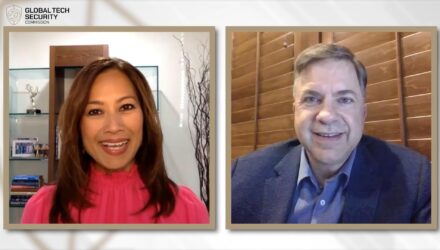
Ambassador Todd Chapman, Diplomacy Commissioner on the Global Tech Security Commission, has a conversation with Krach Institute for Tech Diplomacy’s Executive Producer, Thuy Vu, to discuss his work with the GTSC and the vital role he sees diplomacy play in accelerating the adoption of trusted tech.
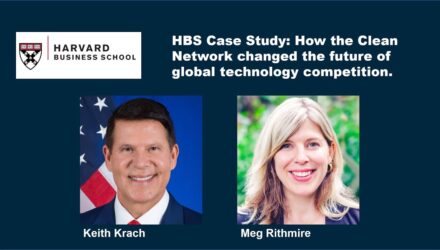
The Chinese telecom giant Huawei and other Chinese telecom firms, like ZTE, had been poised to lead the globe in 5G technology—until the U.S. State Department embarked on a global campaign to challenge the market dominance of Chinese firms with the Clean Network program. The initiative, launched in 2020 and led by Under Secretary of State for Economic Affairs, Energy, and the Environment Keith Krach, united countries and companies around a commitment to abide by a set of shared principles in technology adoption, data privacy, and security practices. Is this a new era of multilateral, democratic governance of the internet, or a “splinternet” forcing participants to choose between the U.S. and China? Krach (MBA 1981) and Harvard Business School Professor Meg Rithmire discuss how the Clean Network Program changed the competitive landscape for 5G in the case, “The Clean Network and the Future of Global Technology Competition.”

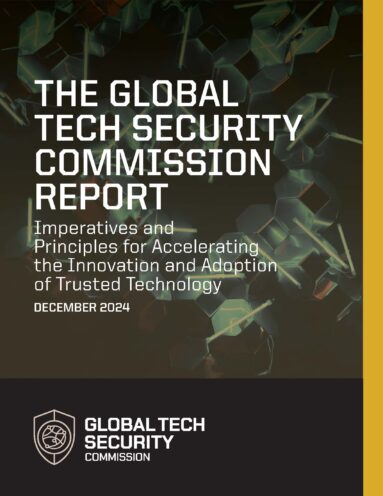
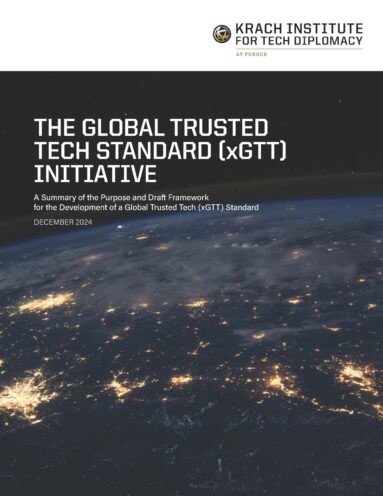
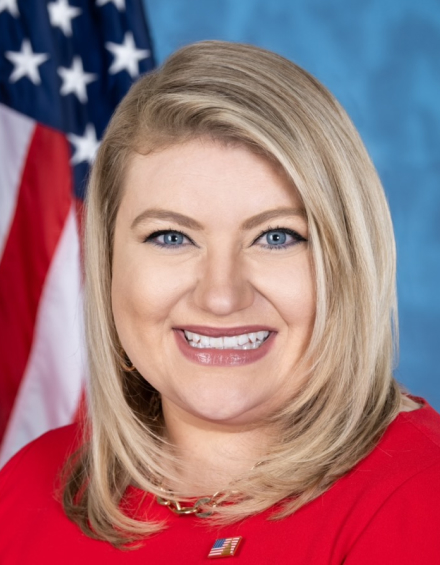
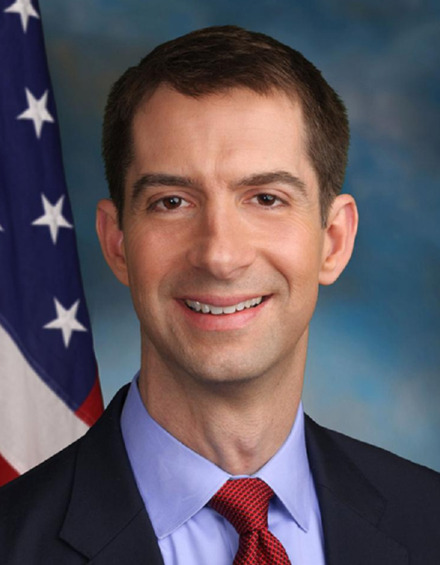
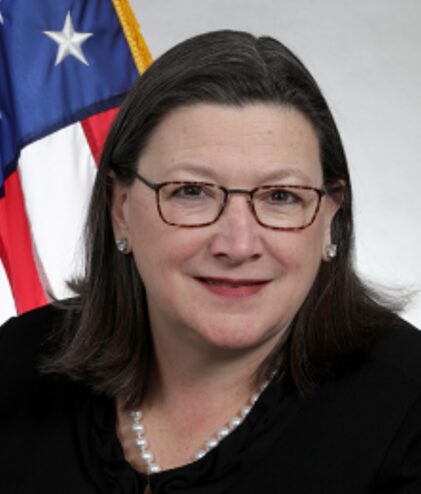
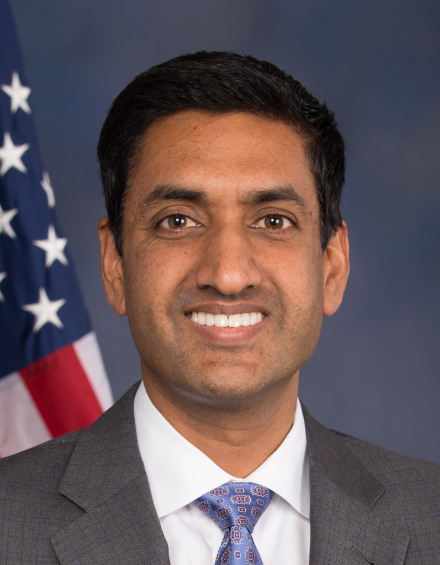
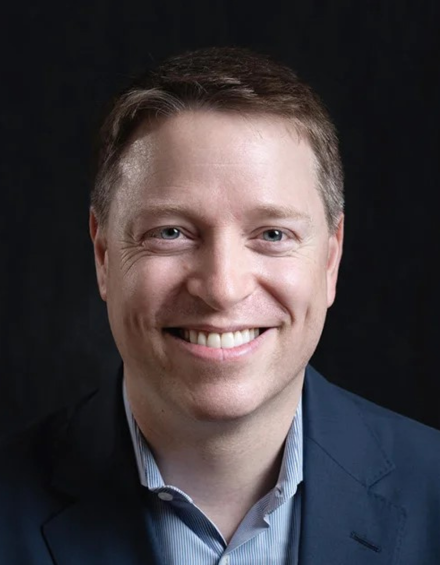
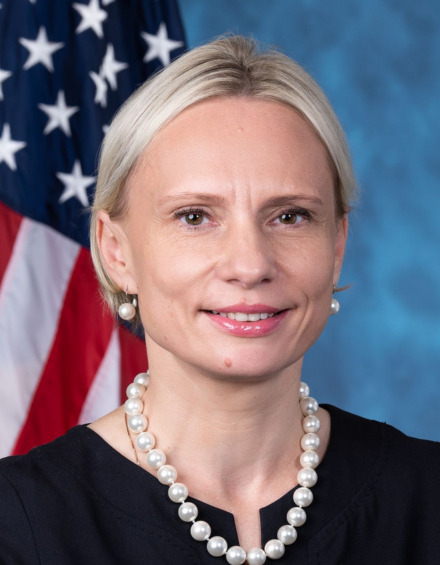

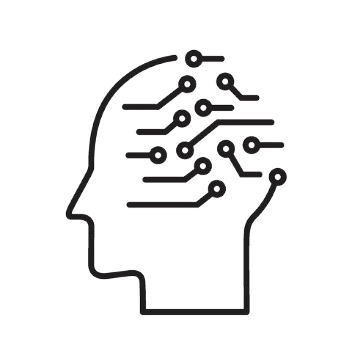




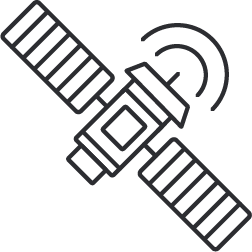
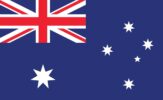

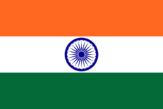

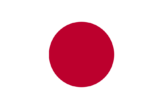
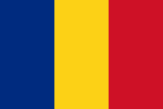
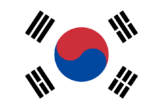
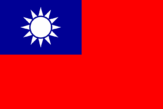

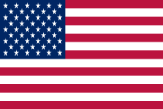
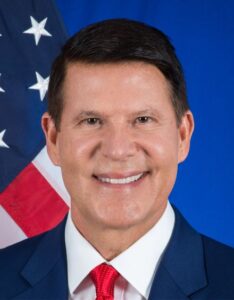 From 2019-2021, then-Under Secretary of State Keith Krach executed a historic diplomatic initiative to build the Clean Network, a group of 60 countries (representing approximately two-thirds of global Gross Domestic Product (GDP)), more than 200 telecommunications companies, and dozens of other industry-leading companies. All entities in the Clean Network are committed to keeping untrusted technologies, such as those manufactured by Huawei, the backbone of the Chinese Communist Party’s (CCP’s) surveillance state, out of their national telecommunications networks.
From 2019-2021, then-Under Secretary of State Keith Krach executed a historic diplomatic initiative to build the Clean Network, a group of 60 countries (representing approximately two-thirds of global Gross Domestic Product (GDP)), more than 200 telecommunications companies, and dozens of other industry-leading companies. All entities in the Clean Network are committed to keeping untrusted technologies, such as those manufactured by Huawei, the backbone of the Chinese Communist Party’s (CCP’s) surveillance state, out of their national telecommunications networks.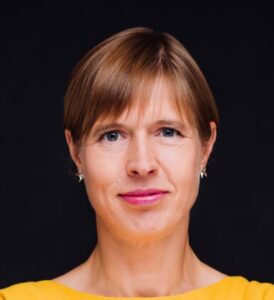
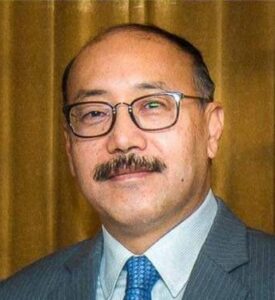
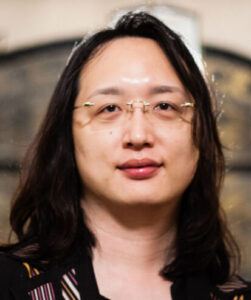 GTSC Commissioner for Taiwan Audrey Tang, the former and first-ever Minister of Digital Affairs of Taiwan (R.O.C.) from 2022 to 2024, has been called one of the “ten greatest Taiwanese computing personalities.” Her work as Digital Minister focused on leveraging technology to help the Taiwanese government function more effectively. Former Australian Prime Minister Tony Abbott and former Japanese Prime Minister Taro Aso, both Global Tech Security Commission Members, also provide an unmatched perspective on geopolitical issues.
GTSC Commissioner for Taiwan Audrey Tang, the former and first-ever Minister of Digital Affairs of Taiwan (R.O.C.) from 2022 to 2024, has been called one of the “ten greatest Taiwanese computing personalities.” Her work as Digital Minister focused on leveraging technology to help the Taiwanese government function more effectively. Former Australian Prime Minister Tony Abbott and former Japanese Prime Minister Taro Aso, both Global Tech Security Commission Members, also provide an unmatched perspective on geopolitical issues.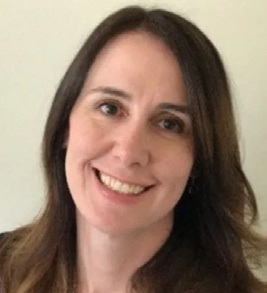 During her time as the Head of Trust Strategy and Marketing at DocuSign, Heather Petersen helped established the xDTM Standard Association, a consortium of leaders in digital transaction management. The Association’s mission, over two years, was to develop a set of best practices for digital transactions in a new era of cloud services. Providers were asked to address security, assurance, privacy, validity, availability, scalability, universality, and interoperability as indicators of trust. DocuSign announced its compliance with the xDTM standard in 2016, and the standard received endorsements from FedEx, Intel, Dow Jones, NBC Universal, Visa, and over 300 other major companies. As Jim Hagemann Snabe, board member at the World Economic Forum, remarked, “The xDTM Standard has enhanced the quality of digital transactions and digital signatures around the world.”
During her time as the Head of Trust Strategy and Marketing at DocuSign, Heather Petersen helped established the xDTM Standard Association, a consortium of leaders in digital transaction management. The Association’s mission, over two years, was to develop a set of best practices for digital transactions in a new era of cloud services. Providers were asked to address security, assurance, privacy, validity, availability, scalability, universality, and interoperability as indicators of trust. DocuSign announced its compliance with the xDTM standard in 2016, and the standard received endorsements from FedEx, Intel, Dow Jones, NBC Universal, Visa, and over 300 other major companies. As Jim Hagemann Snabe, board member at the World Economic Forum, remarked, “The xDTM Standard has enhanced the quality of digital transactions and digital signatures around the world.”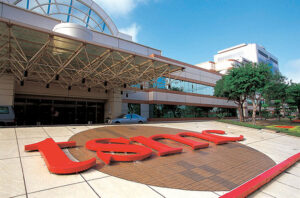 Then-Under Secretary Krach designed and executed the 2020 landmark agreement that led the Taiwan Semiconductor Manufacturing Company (TSMC) to establish a new $12 billion chip fabrication facility (fab) in the U.S. at a time when America did not possess a single fab on its shores. Since the inception of that facility, the largest onshoring project in U.S. history at the time, TSMC has now invested more than $65 billion in three semiconductor plants in the U.S., and companies such as Micron, Intel, and others have decided to build and diversify their operations in the U.S., Japan, and Germany. In 2024, South Korea’s SK Hynix invested $4 billion to build a fabrication facility at Purdue’s Research Park, the largest economic development project in Indiana’s history.
Then-Under Secretary Krach designed and executed the 2020 landmark agreement that led the Taiwan Semiconductor Manufacturing Company (TSMC) to establish a new $12 billion chip fabrication facility (fab) in the U.S. at a time when America did not possess a single fab on its shores. Since the inception of that facility, the largest onshoring project in U.S. history at the time, TSMC has now invested more than $65 billion in three semiconductor plants in the U.S., and companies such as Micron, Intel, and others have decided to build and diversify their operations in the U.S., Japan, and Germany. In 2024, South Korea’s SK Hynix invested $4 billion to build a fabrication facility at Purdue’s Research Park, the largest economic development project in Indiana’s history.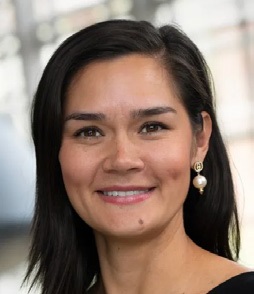 In 2019, while serving as U.S. Assistant Secretary of State for Global Public Affairs, Krach Institute chief executive Michelle Giuda led and executed the
In 2019, while serving as U.S. Assistant Secretary of State for Global Public Affairs, Krach Institute chief executive Michelle Giuda led and executed the 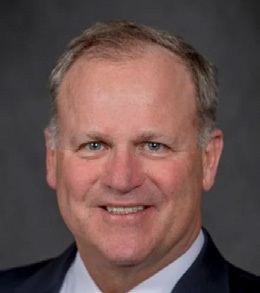 Global Tech Security Commissioner for Education, Henry Stoever, the former President and CEO of the Association of Governing Boards of Universities and Colleges, formed the Council on Higher Education as a Strategic Asset (HESA) to strengthen the global competitive position of the United States through education. Comprised of more than 60 leaders from business, government, nonprofit organizations, education, and the military, HESA has developed recommendations for the President of the United States of America, members of the U.S. Congress, the U.S. Secretary of Education, state governors and legislators, and higher education governing boards and chief executive officers.
Global Tech Security Commissioner for Education, Henry Stoever, the former President and CEO of the Association of Governing Boards of Universities and Colleges, formed the Council on Higher Education as a Strategic Asset (HESA) to strengthen the global competitive position of the United States through education. Comprised of more than 60 leaders from business, government, nonprofit organizations, education, and the military, HESA has developed recommendations for the President of the United States of America, members of the U.S. Congress, the U.S. Secretary of Education, state governors and legislators, and higher education governing boards and chief executive officers.